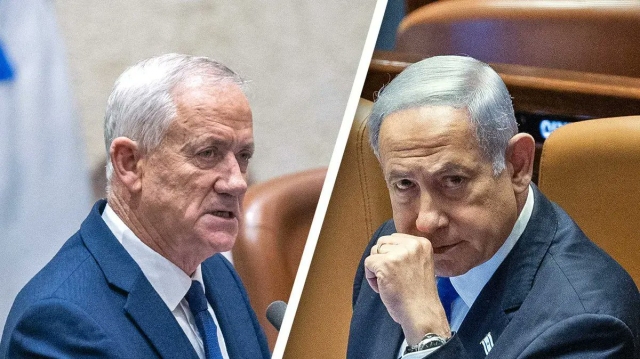As Israel grapples with a judicial crisis that threatens the constitutional balance and the core principles of its democracy, President Isaac Herzog is fervently working to catalyze a political compromise. Earlier this week, Herzog vociferously underlined the urgent need for both government and opposition parties to reconcile their differences. This call for unity precedes a historic session of the Israeli Supreme Court, scheduled for September 12, where an unprecedented assembly of all 15 judges will deliberate on an appeal against a divisive constitutional amendment enacted in July.
In his emphatic speech, President Herzog underscored the pressing need for leaders to seize the available window of opportunity for forging an agreement. "Leadership must grasp rare moments in crises like these to reach substantive agreements. This is precisely such a moment," Herzog stated. He revealed that he has been actively engaged in discussions with key figures from both the Coalition and the Opposition, aiming to prevent a constitutional stalemate that could seriously imperil Israel’s democratic institutions.
Negotiations about a #compromise regarding the government’s judicial reform have been renewed but no agreement has been reached, #Israel's President @Isaac_Herzog said.https://t.co/itlsaSeFjm
— All Israel News (@all_israel_news) September 5, 2023
The contentious amendment, championed by Prime Minister Benjamin Netanyahu's nationalist-religious Coalition, aims to curtail the judicial powers of the Supreme Court. This legislative move, part of a broader initiative launched in January to restructure Israel’s legal system, has elicited substantial public outcry. The controversy has not only fueled large-scale protests but has also inflicted economic setbacks and raised legitimate apprehensions about the resilience of Israeli democracy.
Prime Minister Netanyahu, defending his stance, argues that these judicial reforms are indispensable for re-establishing equilibrium between the country’s governmental branches. In a video communiqué disseminated by his Likud party, Netanyahu reached out to Opposition leader and former Defense Minister Benny Gantz, indicating a willingness to negotiate for a middle ground. However, this seemingly conciliatory gesture was later muddled when Likud categorically refuted media speculations that Netanyahu had consented to moderate the July amendment, halt additional judicial legislation for 18 months, and relinquish proposed changes to the judicial selection committee’s composition.
Netanyahu calls on Gantz to accept the compromise on judicial reform (essentially a 1.5-year freeze). Gantz basically says that since the coalition partners don't agree, he doubts Netanyahu can deliver, so now isn't the right time for him to accept the compromise.
— Lahav Harkov (@LahavHarkov) September 5, 2023
In response, Benny Gantz, while speaking to members of his own party, corroborated some of the leaked details pertaining to these proposals. He squarely placed the onus of reaching any viable compromise on Netanyahu, explicitly highlighting that the Prime Minister must counteract extremist factions within his Coalition that are intent on pursuing the judicial overhaul aggressively.
Justice Minister Yariv Levin, an instrumental figure in the campaign to reform Israel’s justice system, dismissed these media reports as mere "trial balloons" in an interview with Army Radio. He expressed the belief that it would be inappropriate for the Supreme Court to interfere in legislative prerogatives.
Opposition party chief Benny Gantz dismisses Netanyahu’s calls for direct talks, saying the Prime Minister can’t deliver on compromise
— i24NEWS English (@i24NEWS_EN) September 5, 2023
'The unfortunate truth is it’s not clear if Netanyahu wants agreements, what is certain is that at this moment, he’s unable to reach them' pic.twitter.com/955MktAHC2
As Israel finds itself at a critical juncture, its democratic fabric delicately hangs in the balance. The Supreme Court is preparing for a string of appeals this month that question the legitimacy of the government's recent judicial undertakings. Amidst these intricate political machinations, President Herzog stands as a mediator, earnestly hoping to avert a constitutional crisis. The success of his endeavors will largely depend on the willingness of disparate political factions to find a consensual pathway—one that not only upholds but fortifies Israel’s democratic integrity and facilitates much-needed judicial reform.


